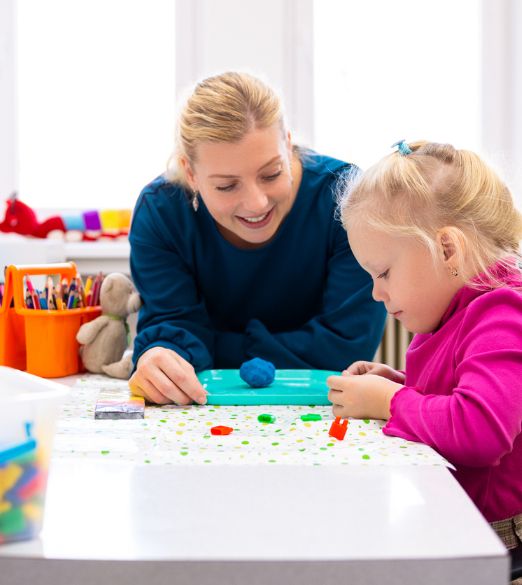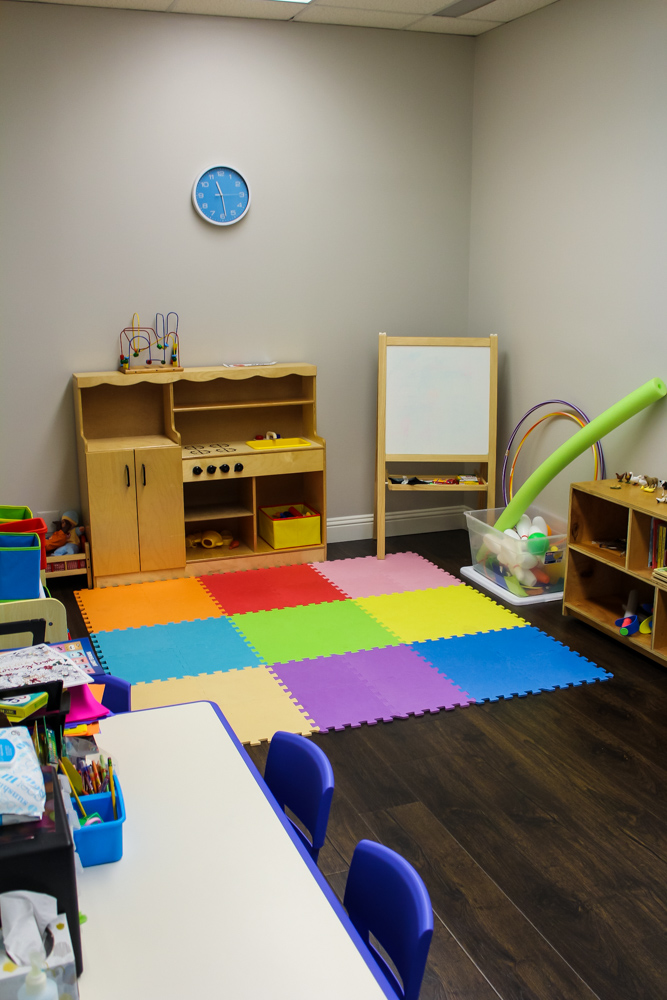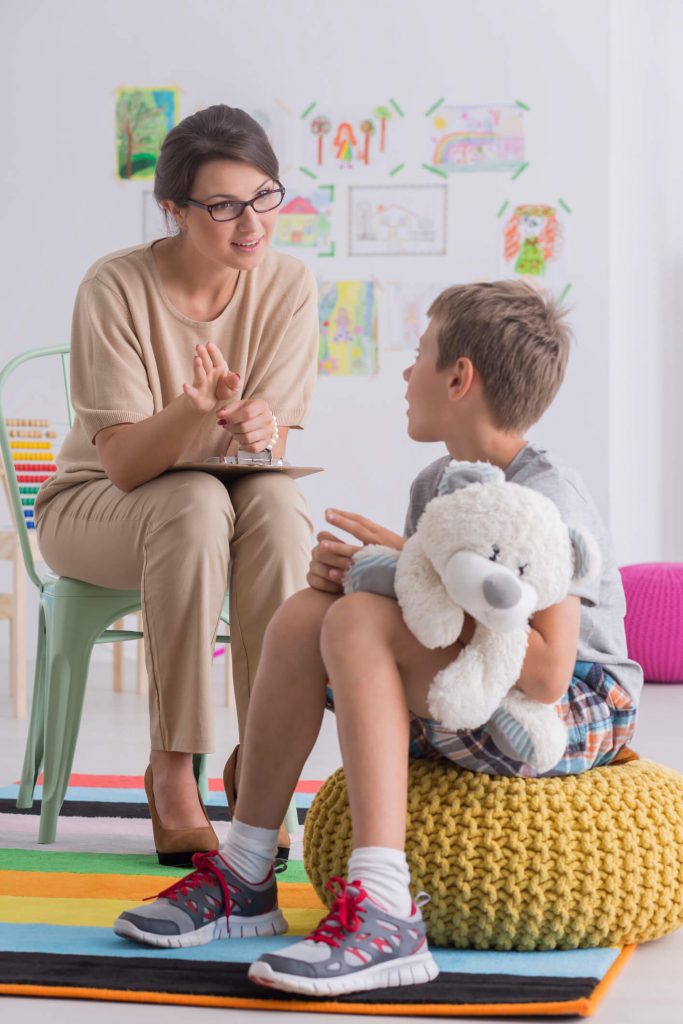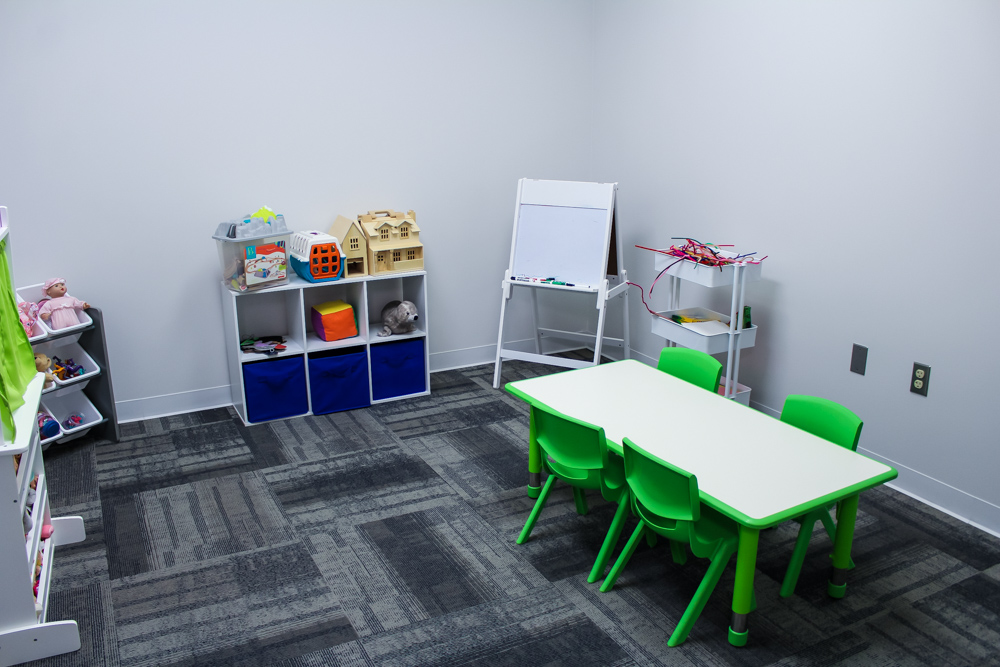
Play Therapy Services with Taylor Counseling Group
Children learn, communicate and interact with their world through play. As therapists, entering into a child’s play world can help us understand the challenges or difficulties they may be going through.
Jump Ahead:
- Play Therapy for Children Aged 5 to 12
- Meet Our Child Therapists
- The Benefits of Play Therapy For Children
- Children’s Play Therapy for Divorce
- Therapy For Your Child’s Behavioral Concerns
Play therapy utilizes a child’s natural inclination toward play to help them express their experiences or feelings. This evidence-based therapy is a natural, self-guided process that can help children heal from trauma, divorce or separation, the loss of a loved one and other experiences that present psychological or psychosocial challenges.
At Taylor Counseling Group, we are proud to offer play therapy services to families struggling to understand their child’s behavioral, emotional, social or learning difficulties.

Play Therapy for Children Aged 5 to 12
Play Therapy can be implemented as a treatment plan typically for clients 5 – 12 years of age. Play Therapy (including, but not limited to play, sand tray and expressive arts therapy) treatment plans can be utilized as the primary intervention or as an adjunctive therapy for multiple social, emotional and behavioral concerns.
Play Therapy can be effective with children experiencing a wide variety of social, emotional, behavioral and learning issues, including children whose problems are related to life stressors such as divorce, death, relocation, hospitalization, chronic illness and generally stressful experiences from home, school or social situations.
Counseling sessions involving play help children:
- Become more responsible for behaviors and develop more successful coping strategies.
- Develop new and creative solutions to problems.
- Develop respect and acceptance of self and others.
- Learn to experience and express emotion.
- Cultivate empathy and respect for thoughts and feelings of others.
- Learn new social skills and relational skills with family.
- Develop self-efficacy and, thus, a stronger assuredness about their abilities.
Schedule a Play Therapy Session for Your Child
Book Online

Children’s Play Therapy for Divorce
A child going through a divorce between their caregivers may experience confusing emotions, from sadness and anger to uncertainty, fear and guilt. Divorce or separation has a ripple effect on family dynamics and the way everyone interacts with each other. Play therapy is a natural way for your children to communicate what they’re feeling and start processing their emotions.
Play therapy sessions can include:
- Your child individually interacting with a therapist.
- Your children interacting with their siblings and a therapist.
- Your child interacting with you or both parents and a therapist.
The aim is to create a space for healthy exploration of emotions and relationship dynamics. Play therapy can teach your children healthy coping skills and help them build resilience for future challenges.
A play therapist provides children with a safe, unbiased environment to express themselves and a place where they can navigate their feelings about the separation in a constructive way. With a safe space to express emotions, your child is less likely to bottle them up and act out inappropriately.

Therapy For Your Child’s Behavioral Concerns
Play therapy can be useful for treating behavioral disorders, such as oppositional defiant disorder, and mental health conditions like depression and anxiety. It can also support children with developmental differences, like autism or attention deficit hyperactivity disorder (ADHD). Through play therapy, your child can learn to express themselves, modify behavior and develop effective problem-solving skills.
Children often evolve their own approach to problem-solving, and they may act out or misbehave when they don’t know how else to cope. A qualified play therapist can assess your child, help them cope with difficult emotions and find healthier resolutions. During play therapy, favorable solutions can be rehearsed, mastered and adapted into lifelong strategies.
Related Article: Mindfulness For Kids

The Benefits of Play Therapy For Children
During play therapy sessions, a bond of trust is developed between children and their play therapist. The playroom becomes a place of safety where even the most troubling problems can be confronted. Some of the incredible benefits our young patients have found through play therapy include:
- Sessions are a safe place where children can express difficult thoughts and feelings
- Ideal for children who find talking difficult
- Facilitates problem-solving and coping skills
- Promotes self-esteem, confidence, focus, emotional healing and growth
- Helps children make decisions and accept responsibility for the outcome
- Children can explore and practice social skills
- Encourages a child’s ability to make friends
- Helps children understand the world they live in
- Allows discovery of inner resources for healing
- Fosters imagination and creativity
- Lasting resolutions can be discovered and adapted into lifelong coping strategies
Behavioral Play Therapy
A play therapist works one-on-one with your child during sessions. The playroom is a safe environment with boundaries where your child can express themselves and explore their inner emotional state. Typically, children do play therapy between two and 12 months depending on the complexity or severity of the behavioral concerns. Your play therapist will analyze progress and adjust the plan and timeline as needed.
During sessions, the therapist may identify self-defeating and self-critical thoughts driving unfavorable behaviors. The therapist will use play to correct the behavior and beliefs, replacing them with more positive ones. For example, a play therapist may use puppets to demonstrate healthy versus unhealthy behaviors through scenarios, illustrating better ways of dealing with situations and feelings.
Related Services & Articles:













